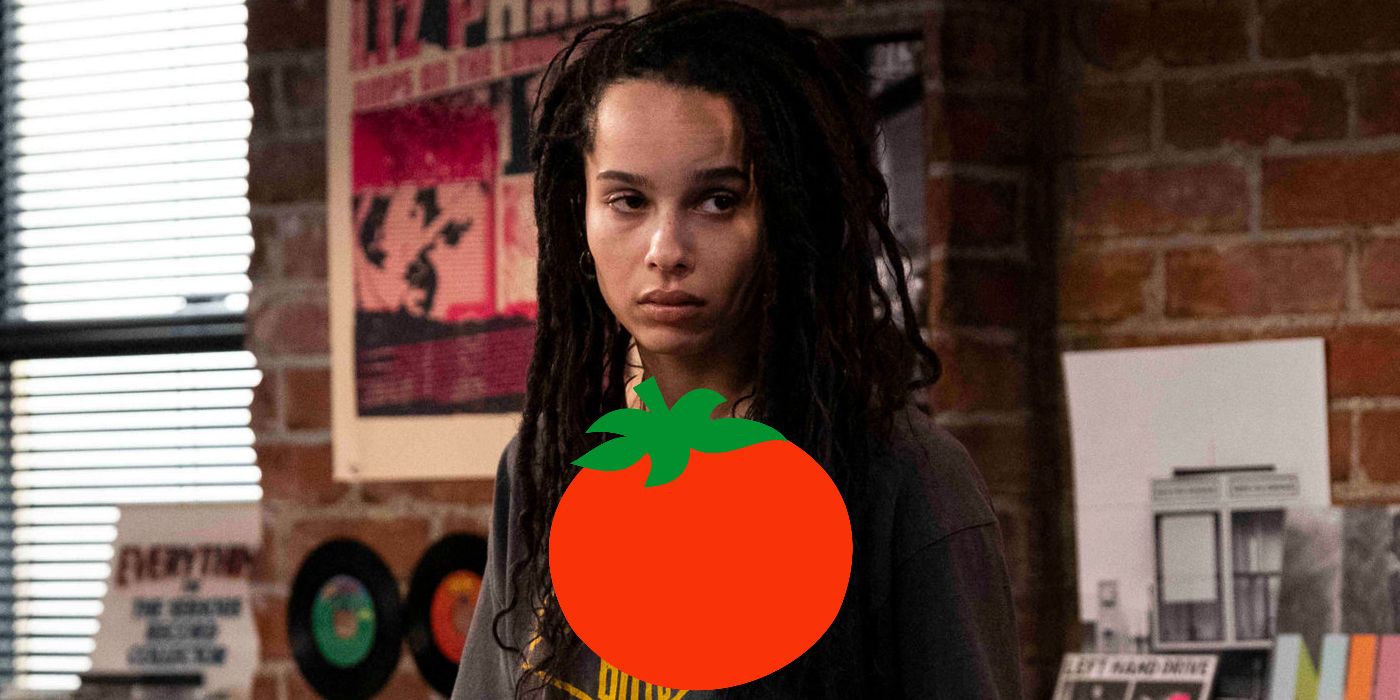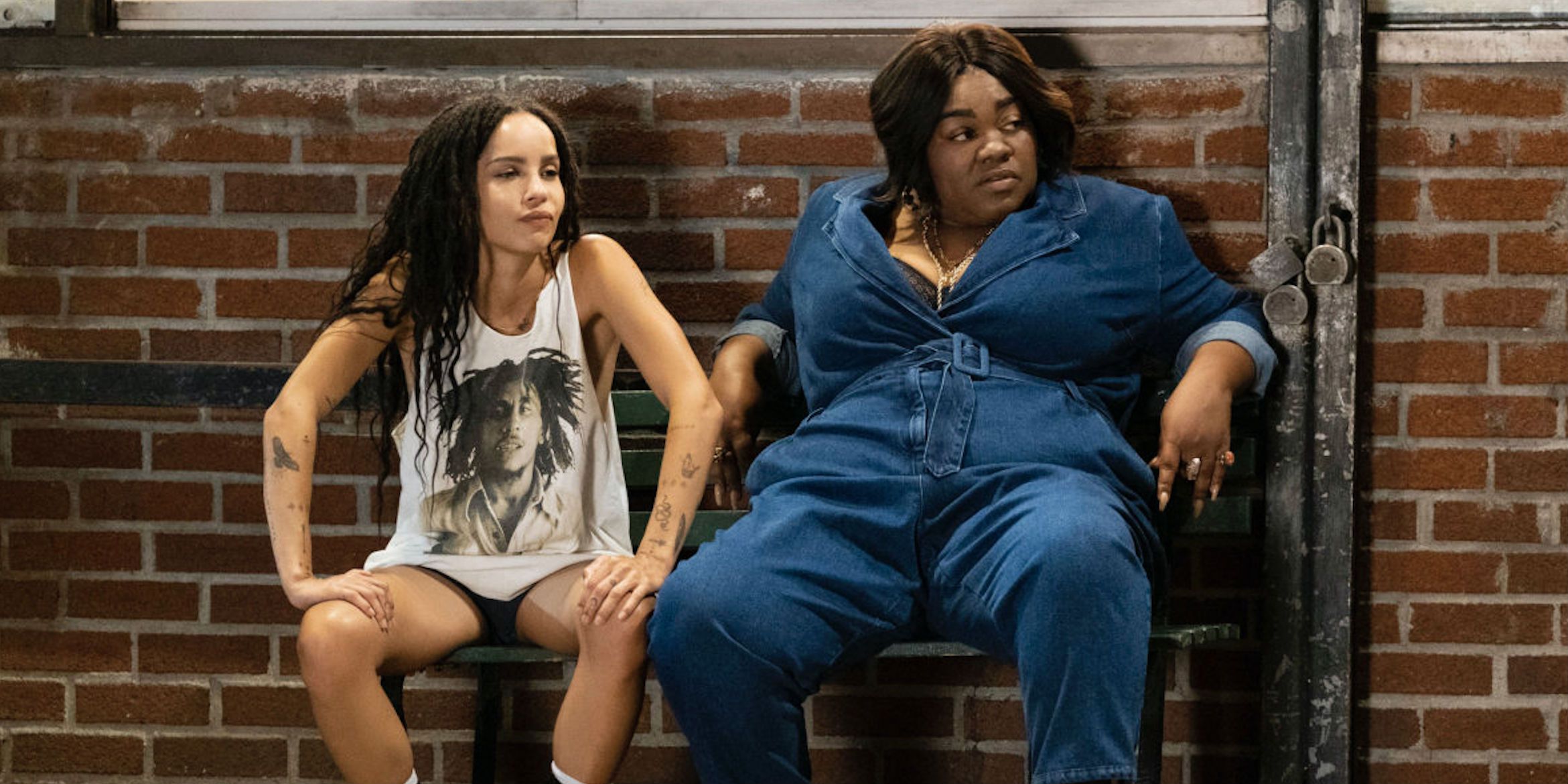Despite heavy skepticism surrounding the concept, Hulu’s gender-swapped reboot of Nick Hornby’s High Fidelity has received highly positive reviews. Hornby's novel High Fidelity, about a not-so-lovable loser who tries to get over his latest break-up by obsessing over his favorite music, was an instant hit when it was released in 1995. The movie adaptation, which dropped five years later, won over a generation of new fans. High Fidelity is one of the great modern stories about people who turn to their hobbies as a means to cope with their inability to connect with others. It wasn’t exactly a story that audiences seemed eager to see remade or rebooted. Of course, in a remake obsessed industry, it seemed inevitable, and fortunately, this one was a success.
The newest iteration of High Fidelity comes courtesy of Hulu and stars Zoe Kravitz in the leading role (her mother, Lisa Bonet, starred in the 2000 movie). Given how much of the original narrative is rooted in exploring male petulance, it seemed a curious choice to retell this tale with a black woman at the center. Showrunners Veronica West and Sarah Kucserka, who previously worked on Ugly Betty, have managed to skillfully make the transition and revive the story for the millennial age.
Currently, High Fidelity season 1 has a rating of 70 on Metacritic and a Rotten Tomatoes score of 86%, with audiences similarly satisfied and offering a score of 82%. That’s an impressive start for a reboot that nobody seemed to want in the first place and had many wondering if the concept could even work in the modern-day with a new protagonist who wasn’t an entitled white guy. Reviews praised the show’s keen characterization and the way its more languid pacing allows for sharper and better developed emotional beats than a movie could ever allow for. Kravitz and her co-stars, including Dolemite is My Name star Da’Vine Joy Randolph, received praise a-plenty for their performances, finding subtle notes amid the familiar beats. Here’s what some of the most positive reviews of High Fidelity had to say about season one.
"West, Kucserka, and the show’s team of writers show us both a Rob consumed by that heartbreak and a Rob going about the business of life in a way that the film simply couldn’t; she falls in and out of touch with people, changes her mind frequently, recovers and slips backward, and contradicts herself. That the series dwells on her heartbreaks is due not to the economy of its runtime, but her own fixations, and when Rob successfully manages to distract herself, the series comes alive in a new way."
"What’s even more satisfying is how a change in casting shifts the meaning of Hornby and Frears’ stories. From the most recent version of Ghostbusters to Ocean’s 8, gender-flipped reboots tend to offer female-empowerment bromides and little else. But there’s something subtler going on in High Fidelity. In every episode, we get to see women, queer people and people of color to whom music matters just as much as it does to the archetypal straight, white, man-child record collector."
"Romantic comedies have so many tropes and predictable punchlines that the whole genre has become a cliché. It can be hard to remember why stories of love and loss, balanced with just enough humor, became so popular in the first place. "Fidelity" isn't revolutionary, but it's just nuanced enough to remind us how affecting a first date and a tear-filled breakup can be. It's a new look for the formerly masculine, Gen X "Fidelity" story, but it's got the same great flavor."
"So for a series that so often operates in tandem with the music playing in the background, “High Fidelity” has a consistent rhythm that’s flexible enough to bend with the demands of each passing episode. Viewers expecting a tight, compact album might be pleasantly surprised to see this season take on a more open-ended Spotify playlist feel, designed to keep playing and be enjoyed knowing that the end is still far in the future. At times, it’s an eclectic mix of ideas and execution, but there’s a great amount of satisfaction in just letting it all wash over you."
Another thing that critics seem to be praising about Hulu's High Fidelity is its risk in gender-swapping the main character and being updated for modern audiences, especially since the novel released over two decades ago. The biggest difference critics see with how High Fidelity approached it versus other gender-swapped shows and movies is that it was done in a much subtler way. However, not all reviews were so enthusiastic. Other critics took issue with the numerous call-backs to the original film and did not feel that the update did enough work to keep the narrative relevant or for the series to justify its own existence. Plus, some critics felt that the series has great points to start with, but then it fails to capitalize on those points by the end of the season. Here's what some of the more disappointing High Fidelity reviews said.
"Stretching out a two-hour movie into a five-hour drama while emptying it of its thematic substance and cultural relevance with little to replace them is exasperating enough. But High Fidelity also asks us to disbelieve our eyes by positing Kravitz — who is very much styled here as "Zoe Kravitz, impossibly glamorous daughter of a rock star" — as a relatable everywoman, which feels as if a young Lenny Kravitz was cast as one of the Freaks and Geeks. If anyone can be too gorgeous and effortlessly cool for a role, it's Kravitz here, which makes sighing lines like, "I've always wanted to date a musician" laughable and distracting. (All she had to do was snap her fingers and steel herself for the stampede of shoegazers.)"
"Surely, Rob’s school of cultural snobbery, with its dogma and subcultural purism and concern for authenticity, doesn’t exist as it once did. “High Fidelity” has always concerned itself with nostalgia for youthful heartbreak, but, this time around, the mists of memory haze obscure the hero. The show unfolds in some atemporal nostalgia zone; Rob seems like a middle-aged person’s idealized view of a heartbroken young person. The song remains the same, but the playback device is somehow obsolete."
"At the end of the day, it’s hard to justify sitting down to watch ten 30-minute episodes of a series that doesn’t necessarily want to stretch. The side characters grow and develop but Rob comes out as a stagnant character. Maybe now that the first season is established, subsequent seasons can blossom beyond Rob dating men and critiquing music. High Fidelity may have a rollicking soundtrack, both on-screen and in its pace, but its depth is fairly shallow."
"The story needs more help than Kravitz can give it, leaning on a fairly simple and uninteresting sort-of-love-triangle (she misses her ex, who is now engaged to someone else) that would not exist without coincidence and fairly unbelievable behavior on the part of all parties. […] Worst of all, there seems to be no motivating force behind the story: “High Fidelity,” the film, told a story of a man whose fetish for collecting and cataloging meant that, in love, he was unable to be present and human. “High Fidelity,” the TV show, has created a character who likes music and wants to be loved. Both of those traits are good starting points, but as endpoints — and placed into conversation despite being basically unrelated — they’re not enough."


